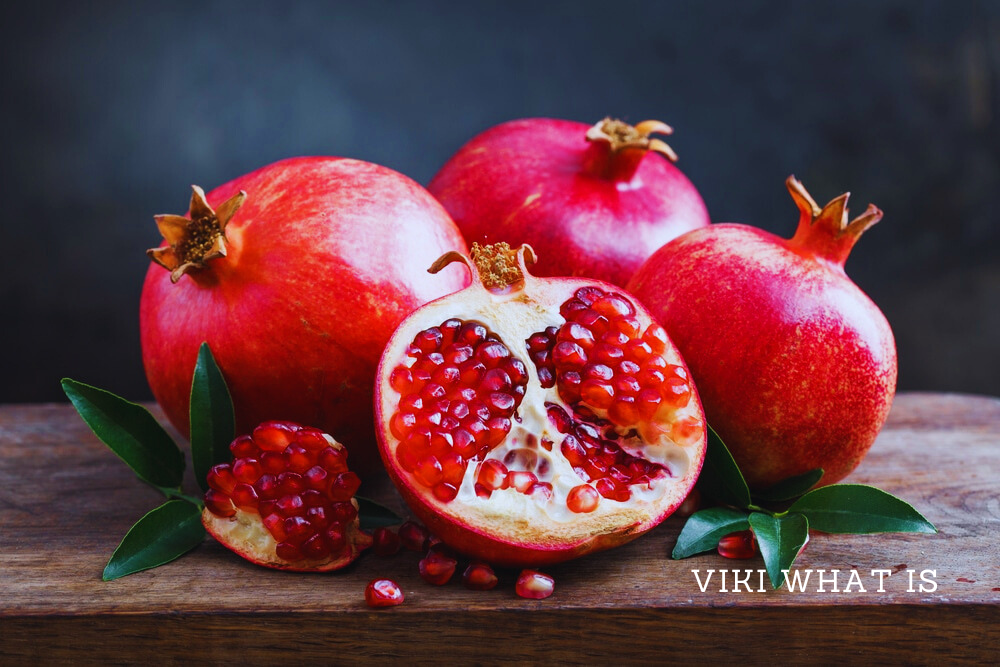Introduction
Pomegranates, with their jewel-like seeds and sweet-tart flavor, have enchanted palates for centuries. For those wondering, “When are pomegranates in season?” the answer lies in the rhythm of nature. In this comprehensive guide, we delve into the nuances of the pomegranate season, unraveling its secrets with an in-depth exploration and FAQs that offer insights and expertise.
When Are Pomegranates In Season?
Pomegranates, botanical name Punica granatum, typically grace us with their presence in the fall, starting from September and extending through February. This window, however, can vary slightly depending on the region and climate conditions. Primarily cultivated in Mediterranean climates, these fruits thrive in areas with hot, arid summers and mild, wet winters, making them a seasonal delight.
Why Is the Pomegranate Season Worth the Wait?
Pomegranates: Nature’s Jewels:
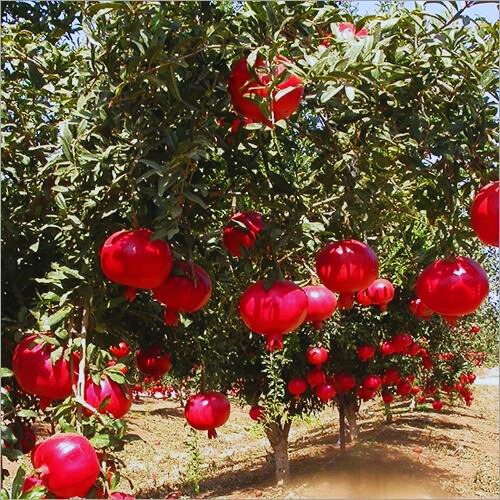
The allure of pomegranates lies not just in their exquisite taste but also in their health benefits. Bursting with antioxidants, vitamins, and minerals, these crimson jewels are a nutritional powerhouse. Their arrival in season marks a period of abundance, inviting us to savor their unique taste and reap their health rewards.
Culinary Delights:
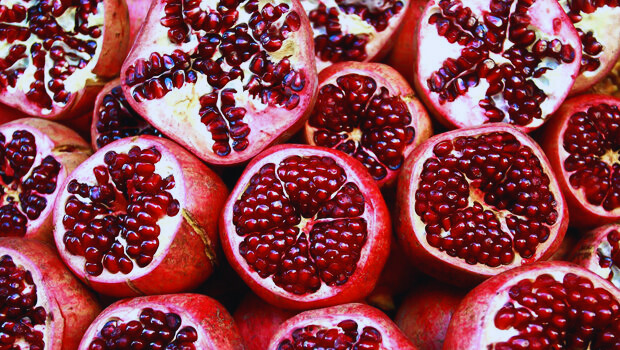
The pomegranate season inspires culinary creativity. From refreshing salads and tangy sauces to decadent desserts, these versatile fruits find their way into a myriad of dishes. The burst of flavor they add is unparalleled, making them a favorite ingredient among chefs and home cooks alike.
Harvest Rituals:

In many cultures, the pomegranate season is steeped in tradition. From ancient rituals symbolizing fertility to modern celebrations of abundance, these fruits have woven themselves into the fabric of diverse societies. The act of harvesting and sharing pomegranates fosters a sense of community and connection with nature.
Historical Significance:
Pomegranates have woven themselves into the tapestry of human history, their significance reaching back thousands of years. Across cultures and civilizations, this luscious fruit has symbolized diverse themes, from fertility and abundance to life, death, and rebirth.
In ancient Greece, pomegranates were associated with Persephone, the goddess of spring and fertility. According to mythology, her consumption of pomegranate seeds in the underworld bound her to Hades, leading to the changing seasons. This story highlighted the fruit’s connection to life cycles and renewal, making it a symbol of regeneration.
Across Asia, particularly in India and China, pomegranates are seen as symbols of fertility and good fortune. In traditional Chinese medicine, various parts of the pomegranate plant are used for their medicinal properties, reflecting the fruit’s valued status.
Different Pomegranate Varieties
With their myriad varieties, pomegranates offer a diverse palette of flavors, sizes, and colors. Each variety has its unique characteristics, making the pomegranate season a thrilling time for culinary exploration. Here are some notable pomegranate varieties that enchant fruit enthusiasts worldwide:
1. Wonderful:
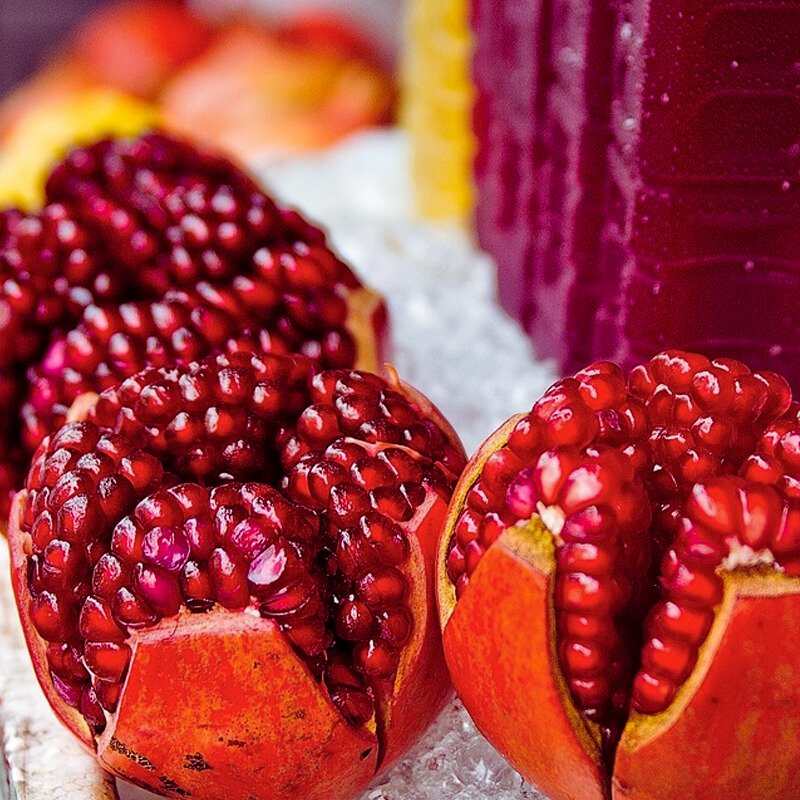
The “Wonderful” pomegranate is perhaps the most well-known variety. With its deep red, leathery skin and plump, juicy arils, it’s a favorite for fresh consumption. Its sweet-tart taste and vibrant color make it perfect for salads, juices, and desserts.
2. Haku Botan:
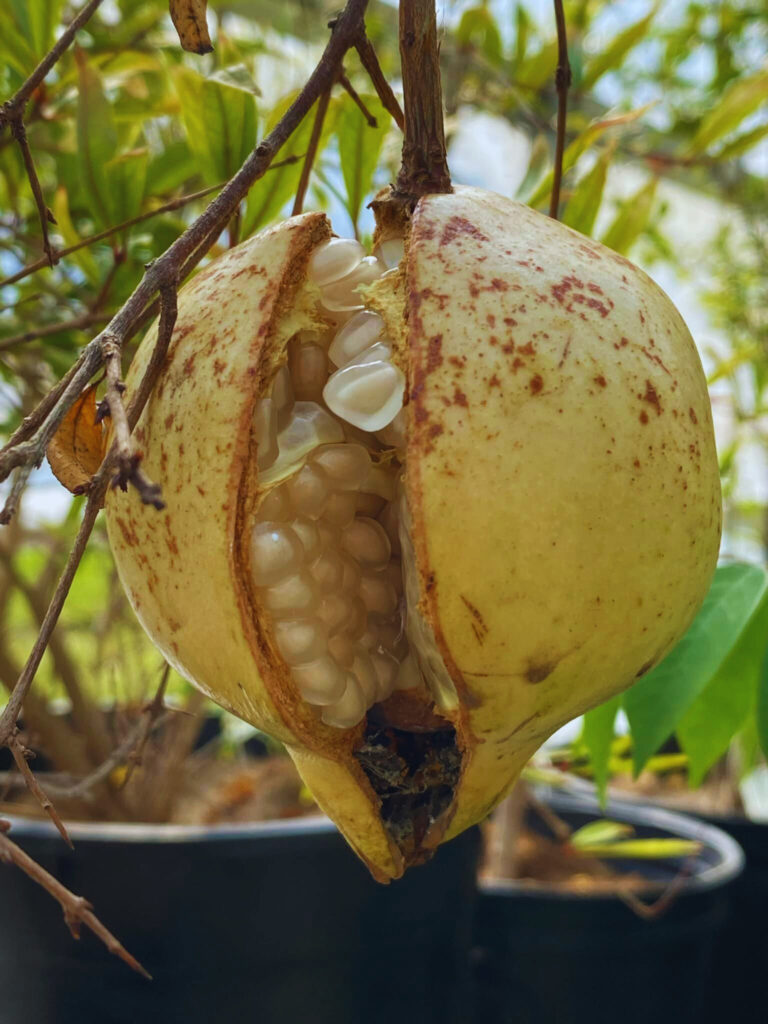
Originating from Japan, the Haku Botan pomegranate is prized for its exceptionally sweet taste. Its pale pink skin encases arils that are almost translucent, creating an alluring visual appeal. This variety is often regarded as the sweetest among pomegranates.
3. Ambrosia:
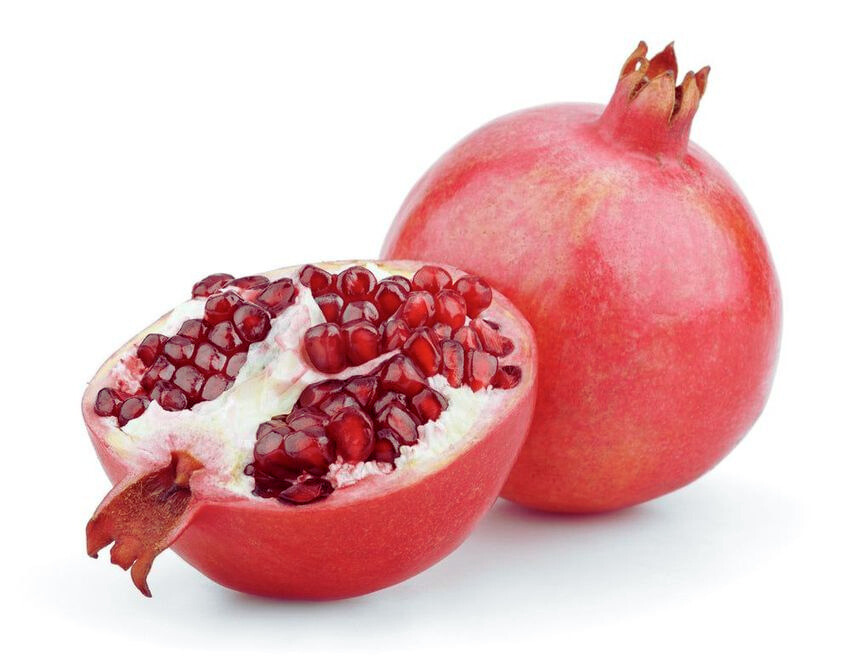
The Ambrosia pomegranate is known for its large size and sweet, non-acidic flavor. Its arils are tender and juicy, making them ideal for snacking. This variety is a favorite among those who prefer a sweeter, milder taste.
4. Grenada:
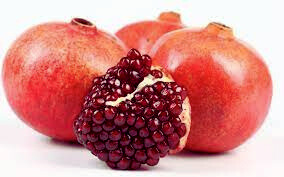
Grenada pomegranates are recognized for their rich, dark red arils and robust, slightly tangy flavor. They are often used to make pomegranate molasses, a popular ingredient in Middle Eastern cuisine. Grenada pomegranates are valued for their intense flavor, making them a favorite for cooking and baking.
5. Angel Red:
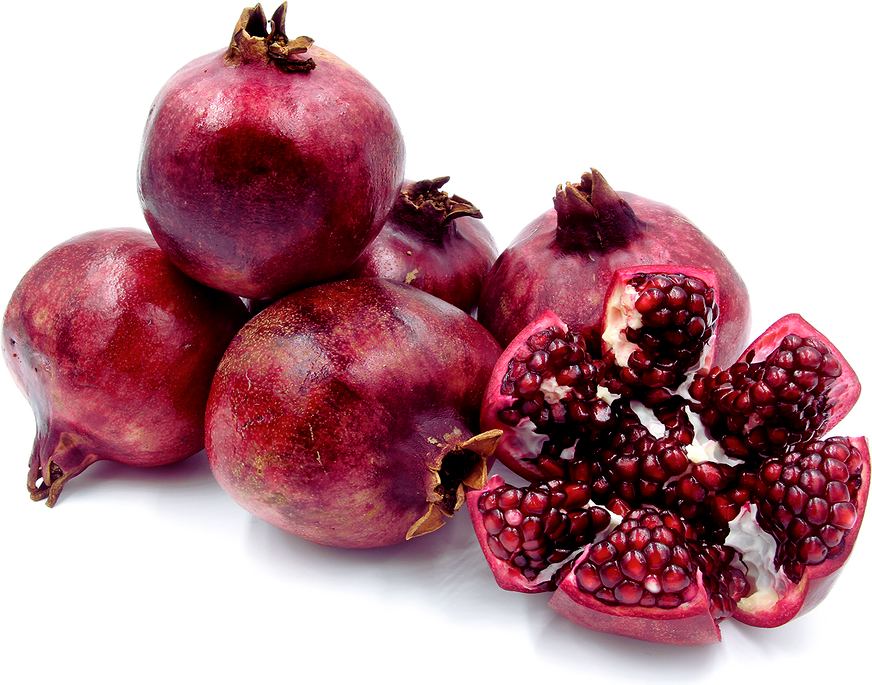
As the name suggests, Angel Red pomegranates feature bright red arils that are exceptionally sweet and juicy. This variety is favored for its minimal seeds and high juice content, making it a popular choice for extracting pomegranate juice.
6. Parfianka:
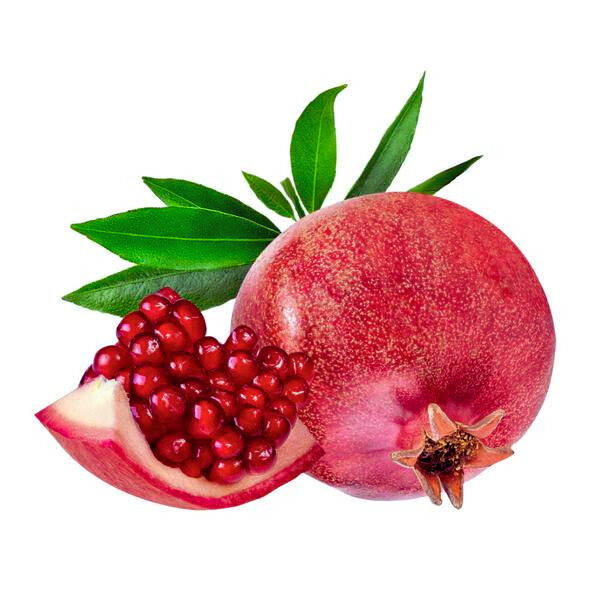
Parfianka pomegranates are renowned for their complex, sweet-tart flavor profile. Originating from Uzbekistan, this variety is prized for its balance of sweetness and acidity. Its deep red arils burst with a delightful combination of flavors, making it a sought-after choice for both fresh consumption and juicing.
7. Eversweet:
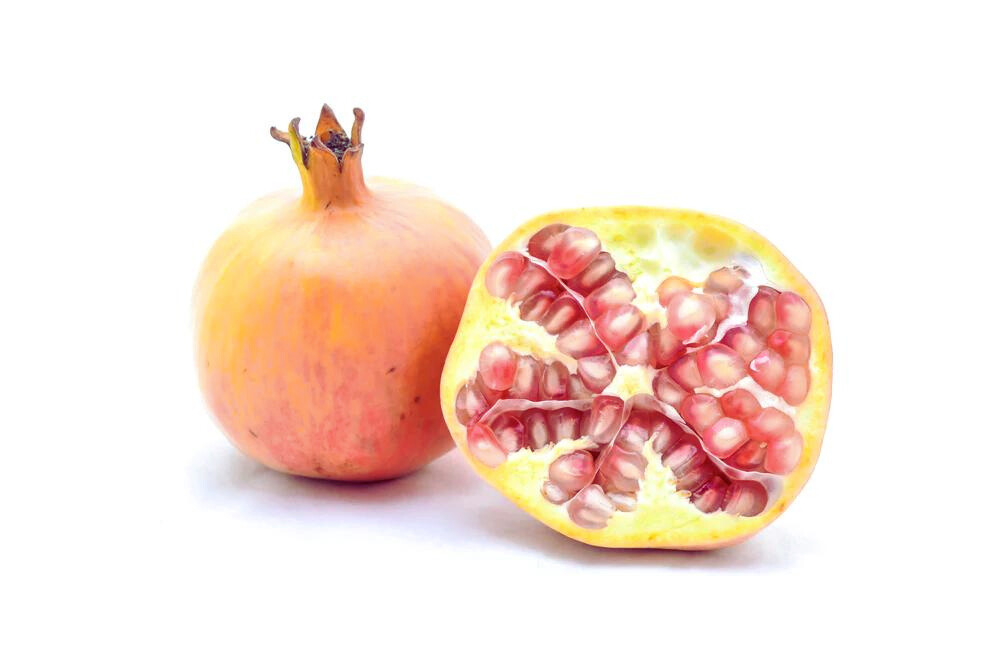
Eversweet pomegranates live up to their name by offering consistently sweet, non-acidic arils. This variety is notable for its light pink skin and juicy, gem-like seeds. Eversweet pomegranates are cherished for their refreshing sweetness, making them a popular option for snacking and desserts.
Exploring these diverse pomegranate varieties allows enthusiasts to experience the subtle nuances in taste and texture, adding a delightful dimension to the pomegranate season. Whether enjoyed fresh, juiced, or incorporated into culinary creations, each variety contributes its unique charm to the culinary world.
Pomegranates Health Benefits

Pomegranates, often called nature’s powerhouses, offer a wide array of health benefits, making them a popular choice among health-conscious individuals. Rich in antioxidants, vitamins, and minerals, pomegranates contribute significantly to overall well-being. Here are some compelling reasons why indulging in this crimson fruit can be a boon for your health:
1. Antioxidant Richness:
Pomegranates are loaded with antioxidants, including flavonoids and anthocyanins, which help neutralize harmful free radicals in the body. These antioxidants play a crucial role in reducing oxidative stress, lowering the risk of chronic diseases, and promoting a healthy immune system.
2. Heart Health:
Consuming pomegranates has been linked to improved heart health. The antioxidants in pomegranates can lower blood pressure, reduce cholesterol levels, and enhance overall cardiovascular function. Regular intake may contribute to a decreased risk of heart disease and related complications.
3. Anti-Inflammatory Properties:
Pomegranates possess potent anti-inflammatory properties, which can help alleviate symptoms of inflammatory conditions such as arthritis. The natural compounds in pomegranates suppress inflammatory markers, reducing joint pain and improving mobility.
4. Cancer Prevention:
Studies suggest that the antioxidants in pomegranates may have anticancer effects. They have been shown to inhibit the growth of cancer cells and prevent the spread of certain types of cancer, particularly breast and prostate cancer. While more research is needed, the potential cancer-fighting properties of pomegranates are promising.
5. Digestive Health:
Pomegranates are a good source of dietary fiber, which aids in digestion and promotes a healthy digestive system. Fiber adds bulk to stools, preventing constipation and supporting regular bowel movements. Additionally, pomegranates have natural anti-bacterial and anti-viral properties, promoting a balanced gut flora.
6. Skin Rejuvenation:
The antioxidants and vitamin C in pomegranates contribute to healthy, radiant skin. They help combat signs of aging, reduce skin inflammation, and promote collagen production, enhancing skin elasticity and firmness. Pomegranate extracts are also used in skincare products for their rejuvenating properties.
7. Improved Memory:
Preliminary studies suggest that pomegranates may have a positive impact on memory and cognitive function. The antioxidants in pomegranates are believed to protect brain cells from damage, potentially reducing the risk of neurodegenerative diseases like Alzheimer’s.
Incorporating pomegranates into your diet, whether as fresh fruit, juice, or seeds sprinkled on dishes, can be a flavorful and nutritious way to boost your overall health. As you savor the exquisite taste of pomegranates, you’re also nourishing your body with a myriad of health benefits, making this fruit a delightful addition to a balanced diet.
Unique Pomegranate Recipes
Pomegranates, with their sweet-tart taste and jewel-like arils, add a burst of flavor and a touch of elegance to culinary creations. Here are some unique and delightful pomegranate recipes that showcase the versatility of this exquisite fruit:
1. Pomegranate Glazed Chicken:

Marinate chicken breasts in a mixture of pomegranate juice, honey, garlic, and a hint of soy sauce. Grill or roast until cooked through. Simmer the remaining marinade to create a glaze. Drizzle the glaze over the chicken and garnish with fresh pomegranate arils and chopped parsley. The result is a harmonious blend of sweet, savory, and tangy flavors.
2. Pomegranate Salad with Goat Cheese:

Toss mixed greens, arugula, and spinach with fresh pomegranate arils, crumbled goat cheese, and toasted walnuts. Drizzle with a vinaigrette made from pomegranate juice, olive oil, Dijon mustard, and a touch of honey. This vibrant salad offers a delightful contrast of textures and tastes, making it a crowd-pleaser.
3. Pomegranate Salsa:
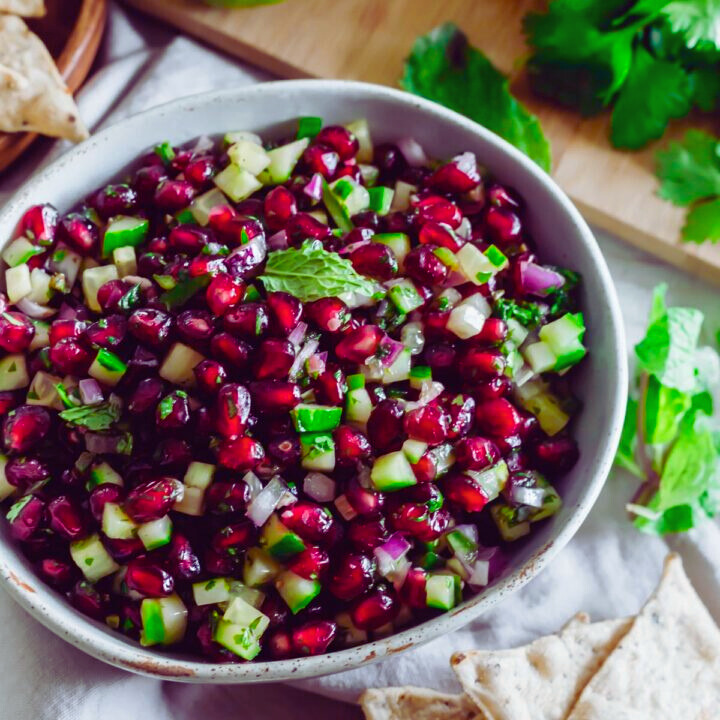
Combine diced pomegranate arils with finely chopped red onion, jalapeño, cilantro, and tomatoes. Squeeze in some lime juice and add a pinch of salt. This refreshing and zesty salsa pairs wonderfully with grilled fish, and chicken, or as a topping for tacos. It’s a colorful and flavorful addition to any meal.
4. Pomegranate and Walnut Stuffed Bell Peppers:
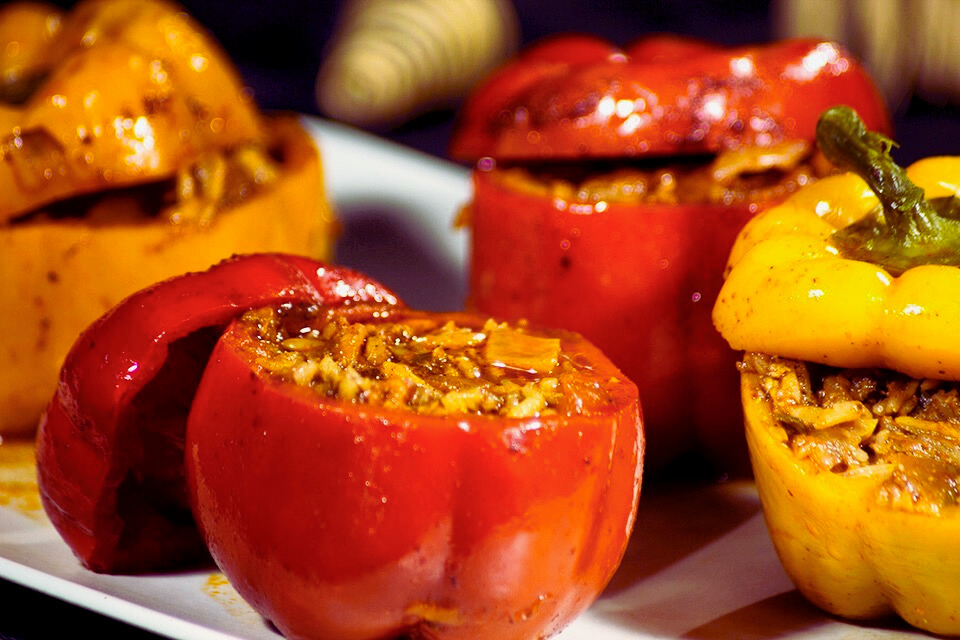
Prepare a filling by mixing cooked quinoa, sautéed onions, chopped walnuts, and pomegranate arils. Season with your favorite herbs and spices. Cut bell peppers in half and remove the seeds. Stuff them with the quinoa mixture and bake until the peppers are tender. The combination of textures and flavors creates a hearty, satisfying dish.
5. Pomegranate Sorbet:
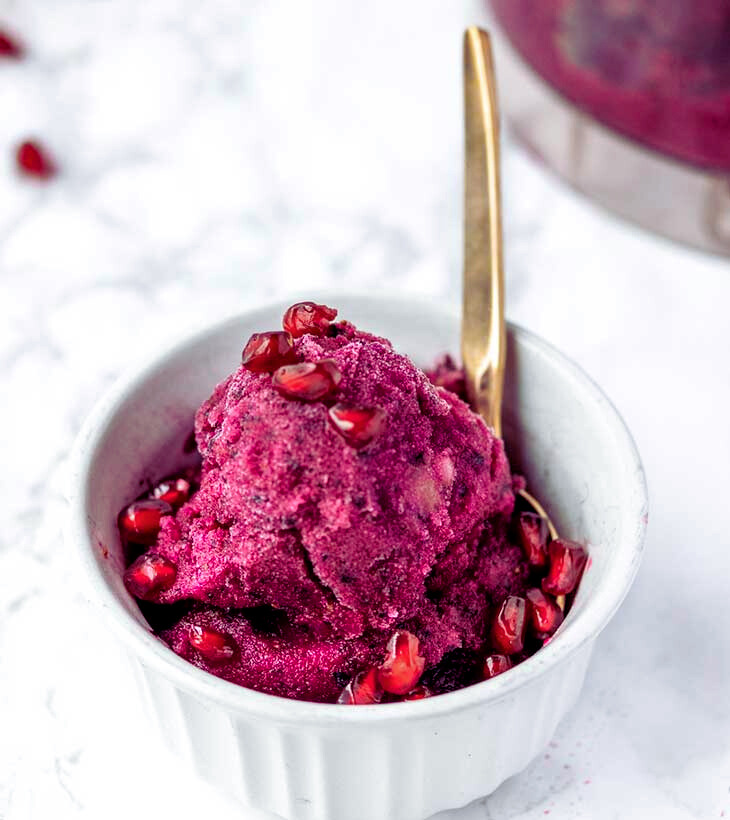
Blend fresh pomegranate juice with a touch of honey and a squeeze of lemon juice. Pour the mixture into an ice cream maker and churn until it reaches a sorbet-like consistency. Freeze for a few hours before serving. This homemade pomegranate sorbet is a refreshing, guilt-free dessert that captures the essence of the fruit’s natural sweetness.
6. Pomegranate Martini:

For a delightful cocktail, mix pomegranate juice, vodka, triple sec, and a splash of freshly squeezed lime juice. Shake well with ice and strain into martini glasses. Garnish with a few floating pomegranate arils for an elegant touch. This vibrant martini is both visually stunning and incredibly flavorful.
These unique pomegranate recipes are a testament to the fruit’s versatility, enhancing both savory and sweet dishes with their delightful taste and visual appeal. Whether you’re hosting a dinner party or simply craving a culinary adventure, these recipes are sure to impress and satisfy your taste buds. Enjoy the rich flavors of pomegranates in creative ways that elevate your culinary creations to a whole new level.
Conclusion
The pomegranate season, spanning from September to February, is a time of culinary delight, nutritional abundance, and cultural significance. As you indulge in the juicy arils of this remarkable fruit, remember the rich tapestry of history and tradition that accompanies it. Embrace the season, savor its flavors, and let the ruby-red allure of pomegranates enrich your senses.
Read also: How Are Cotton Candy Grapes Made: Unveiling the Sweet Magic
Yes, there are several varieties of pomegranates, each with its unique flavor profile and ripening schedule. Some varieties mature early in the season, while others reach their peak sweetness later. This diversity ensures a continuous supply of fresh pomegranates throughout the season.
Absolutely! Pomegranates have a relatively long shelf life. When stored in a cool, dry place, they can last for several weeks, allowing you to enjoy their goodness even after the season concludes. Alternatively, you can freeze their arils for later use in smoothies, desserts, or as a garnish.
A ripe pomegranate should feel heavy for its size, indicating juiciness. Its skin, when tapped, should produce a metallic sound, suggesting full, plump arils inside. Additionally, look for deep color and blemish-free skin. These signs guarantee a luscious, flavorful experience.
Yes, pomegranate trees thrive in sunny locations and well-drained soil. They are relatively low-maintenance, making them an excellent choice for home gardeners. With proper care, you can enjoy a bountiful harvest of fresh, homegrown pomegranates, enhancing your connection with nature and your food.
Certainly! Pomegranates can elevate a wide range of dishes. One delightful recipe is “Pomegranate Glazed Chicken,” where a reduction of pomegranate juice, honey, and spices creates a delectable glaze for roasted or grilled chicken. This dish encapsulates the essence of the season, combining savory and sweet flavors in perfect harmony.
Indeed, pomegranates have been woven into various myths, legends, and superstitions across cultures. In some traditions, they symbolize prosperity and good fortune. In others, they are associated with myths of rebirth and fertility. Exploring these stories adds an enchanting layer to the experience of the pomegranate season.
